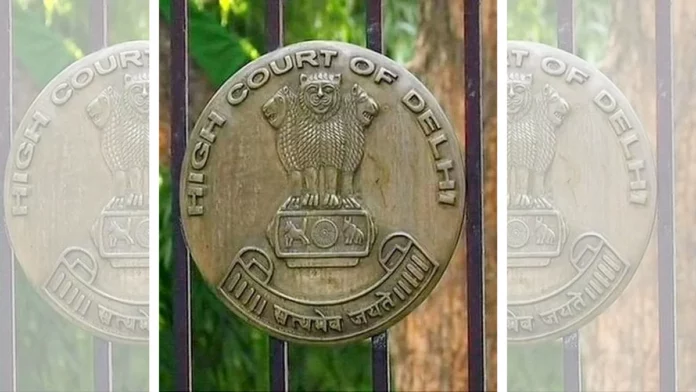The Delhi High Court found that although live-in relationships between married people are not illegal, courts cannot enforce morality. The petitioner sought the quashing of the FIR that had been filed for the offences punishable under Sections 376/323/506/509/427 of the IPC. Justice Swarana Kanta Sharma’s bench was handling the case. In this instance, the petitioner had met the complainant and had made a fake marriage proposal to her before forcibly engaging in physical contact with her.
“Live-in relationships between two consenting adults who are married to separate partners but who live together are neither illegal nor prohibited by law. The Court came to the conclusion that morality has never been prohibited by law and cannot be the focus of any legal morality that is imposed by a judgment.
Judges cannot criminalise activities based on their own moral standards, the Court noted, even though they may have their own opinions about such relationships. “Assigning crime to actions that have not been criminalised on the basis of perceived morality would be a risky venture. Judges may each have their own moral standards, which cannot be imposed on any side, the sole judge said.
Relevantly, the Court decided that a woman cannot legitimately claim rape by asserting that she was coerced into a sexual connection under the false pretence of marriage if she is already legally wed to another person. “A victim who was not legally permitted to marry the person she was in a sexual relationship with cannot be granted the protection and remedies provided by Section 376 of the IPC. If the victim can demonstrate that she was coerced into a sexual relationship under the false pretence of marriage by the other party, who was legally permitted to marry that person, a case can be made out under Section 376 of the IPC, the Court emphasised.
It argued that adults are free to make their own decisions, even though those decisions may not be in line with social standards or expectations. However, the Court ruled that in these situations, they must continue to be prepared to deal with any possible repercussions of their interactions. ” The Justice Such a proposal, according to Sharma, is below the standard of decency required in legal filings.
The court’s ruling stated: “Therefore, this Court is of the opinion that although the immorality of the act on the part of the female partner was argued at great length before this Court, the same standard applies to the male partner, and no distinction should be made based on gender, as doing so would perpetuate misogynistic thinking.”
The court addressed the question of both parties having other marriages while still engaging in a live-in relationship, saying that although the behaviour may be socially objectionable, it is not illegal. The woman allegedly believed the man to be single at first, but the court found that she freely entered into a live-in relationship with him as indicated in their contract. She did so even though there were legal barriers to marriage without divorce, the court said, showing her willingness to maintain the connection while knowing about both parties’ marital status. The HC claimed that the aforementioned agreement did not specifically state that the man had promised to marry her. “This Court notes that the complainant’s marital status—she was not formally separated from her former partner—is a key factor in this instance. This makes it clear that the petitioner and the respondent could not have been legally married. Because she was ineligible to marry the petitioner because of her previous marriage, the complainant had no basis on which to consider that the petitioner had promised to marry her, the court said.
According to the HC, there is no evidence to support the FIR’s claims of criminal intimidation, mischief, and insulting a woman’s modesty. It also stated that the individual had only been charged with rape under Section 376 of the IPC by the trial court in April of this year. The FIR for offences punishable under Sections 376/323/506/509/427 of the IPC and all subsequent proceedings arising therefrom are therefore cancelled, according to Justice Sharma.






